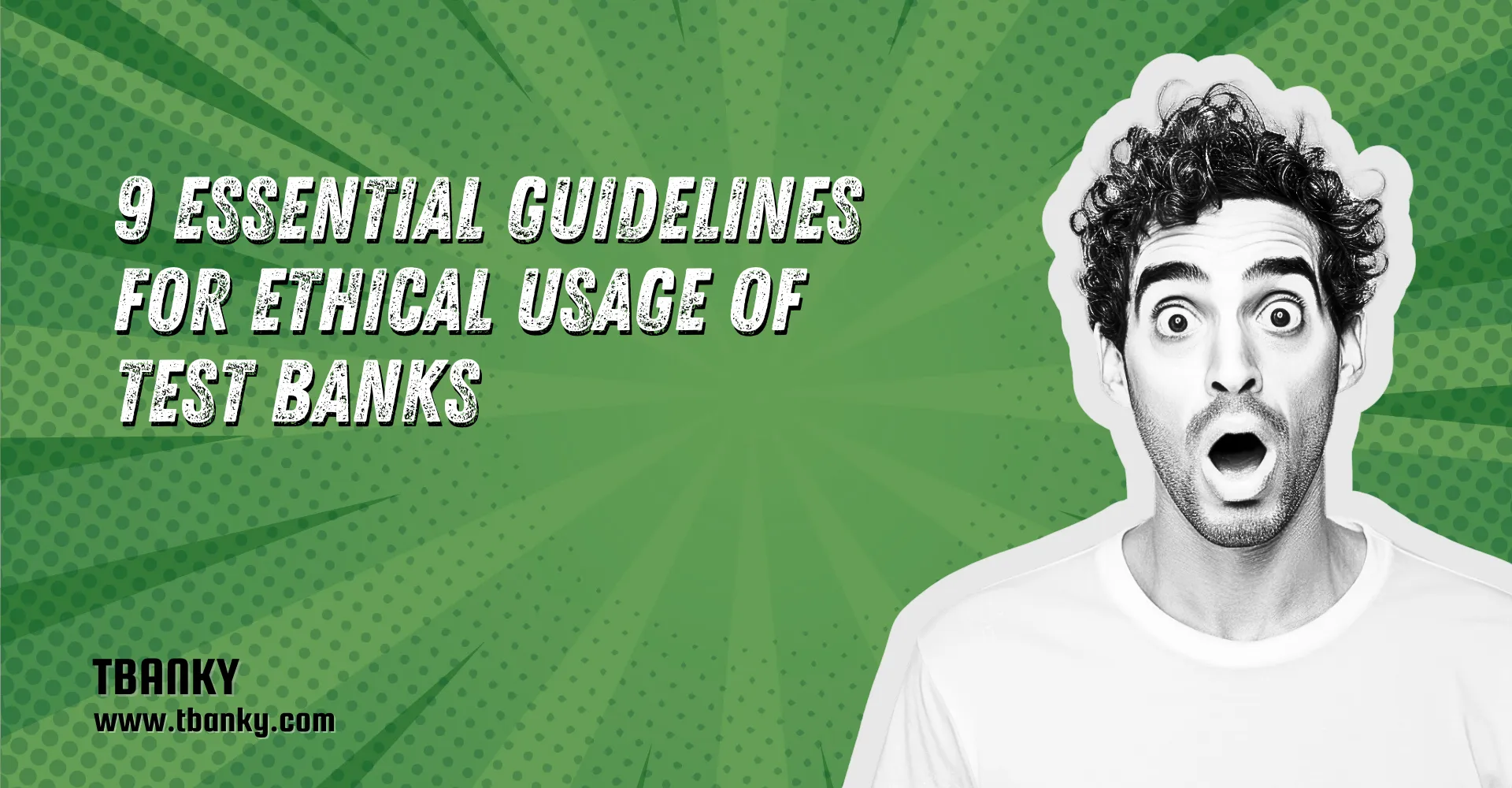Test banks are a ubiquitous resource in the academic world, providing access to a treasure trove of questions that can aid students in preparing for exams and professors in formulating test questions. However, their use comes with significant ethical considerations and responsibilities. Universities and colleges entrust students—and sometimes educators—with the ability to make moral judgments in their academic conduct. Ensuring test banks are used ethically is paramount in maintaining the integrity of the educational process. To guide students and educators alike, let’s explore the nine essential guidelines for the ethical usage of test banks.
1. Understand Your Institution’s Policies
Before considering the use of test banks, it is vital to be aware of and understand your institution’s specific policies regarding them. Many colleges and universities have clear guidelines about the use of external resources, including test banks. Make sure any interaction with test banks is within the permissible boundaries set forth by your academic institution to avoid unintentional misconduct.
2. Use Test Banks as Study Tools Only
Test banks should be used strictly as study aids. They provide a variety of questions that can help you reinforce your understanding of the subject matter. The goal is to use these questions to test your knowledge and identify areas where further study is needed, rather than memorize answers for potential inclusion on exams.
3. Avoid Sharing Unauthorized Material
Sharing test bank questions that are not meant for public distribution can constitute academic dishonesty. Ethical usage dictates that you should not distribute any material from test banks that are proprietary or instructor-specific, especially if they’re part of your institution’s current or future assessments.
4. Cite Test Banks Appropriately
If you are an educator who uses test bank questions as part of your teaching materials or examinations, proper attribution is essential. Citing the source of your questions maintains transparency with students and respects the intellectual property rights of the creators.
5. Do Not Use Test Banks for Cheating Purposes
The misuse of test banks to cheat on exams undermines the very purpose of education—the pursuit of knowledge. Using test bank questions to gain an unfair advantage over others not only is unethical, but also devalues the hard work of honest students and can lead to serious academic penalties.
6. Ensure Recency and Relevancy of Material
Ensure that the test bank material you are studying is up-to-date and relevant to your coursework. Academic fields can evolve quickly, and relying on outdated or irrelevant information can be academically detrimental and misleading.
7. Do Not Sell Test Bank Access
Monetizing access to test banks, especially those that contain proprietary information, is clearly unethical and often illegal. Such actions could result in severe repercussions, including expulsion from your institution or legal action by the rights holders.
8. Use Official and Authorized Test Banks
Always source your test banks from official or authorized distributors to avoid unintentionally infringing on copyright laws. Unauthorized test banks may also contain inaccurate or questionable content that can mislead your studies and distort your understanding of the subject.
9. Encourage Peer Discussions Around Ethical Usage
Openly discussing the ethical implications of test bank usage with peers can foster a culture of integrity and honesty within the academic community. It can also help clarify doubts about what constitutes ethical use and deter potential misuse among students.
In conclusion, test banks can be valuable educational resources when used ethically and within the guidelines set by academic institutions. Adhering to these nine essential guidelines can help maintain the academic integrity that is crucial for the educational process to be both effective and respected. As students and educators navigate the complexities of academic resources, let them do so with a strong moral compass pointing towards ethical and responsible usage.

